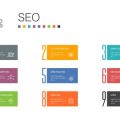Understanding Google Business Profile in the UK Context
Google Business Profile (GBP), previously known as Google My Business, is a vital tool for businesses looking to increase their digital presence, particularly within the United Kingdom. The way GBP functions in the UK is shaped not only by local regulations and business standards but also by unique British user behaviours and regional search patterns. Understanding these nuances is essential for optimising your profile effectively for the UK market.
Regional Visibility Matters
In the UK, customers expect highly relevant local results, whether they are searching for a “plumber in Manchester” or a “café near Covent Garden.” Google’s algorithms take into account location-specific data, making it crucial to ensure your business information reflects your exact geographical location and service areas. Here’s a quick overview:
| Region | Typical Search Terms | User Expectation |
|---|---|---|
| London | Coffee shop near Soho | High competition, preference for reviews & opening hours |
| Manchester | Best plumber in Manchester | Emphasis on service area coverage & response times |
| Edinburgh | Traditional pub Edinburgh Old Town | Cultural authenticity & local reputation matter |
| Birmingham | Indian restaurant Birmingham city centre | Diversity of cuisine & proximity to transport links |
British User Behaviour and Local Search Intent
British users often rely on mobile devices for quick searches while on the move, with an expectation of accuracy and up-to-date information. They tend to look for specific features such as:
- Clear opening hours, including bank holiday updates
- Direct contact options (click-to-call or message)
- Authentic customer reviews (preferably from fellow locals)
- Accurate directions via Google Maps integration
- Photos that reflect current premises and offerings
Key Takeaways for Optimisation in the UK Market:
- Your GBP must be regularly updated to reflect local events, holidays, and any operational changes.
- User-generated content such as reviews and Q&As play a significant role in influencing decisions due to the high level of trust placed in peer recommendations across the UK.
- The more tailored your profile is to regional expectations, the better your visibility and engagement will be with local customers.
By recognising these unique aspects of how Google Business Profile operates within the British context, you lay a strong foundation for effective optimisation tailored specifically for the UK market.
2. Setting Up Your Profile with Accurate UK Business Details
Ensuring your Google Business Profile is set up with authentic and precise details is the cornerstone of effective local optimisation in the UK. This not only builds trust with potential customers but also ensures your business complies with relevant UK regulations. Below, we outline key best practices for entering your business name, address, and contact information tailored specifically for the UK market.
Enter an Authentic Business Name
Your business name on Google should exactly match your registered trading name as it appears on legal documentation and signage. Avoid adding extra keywords or locations unless they are part of your official brand identity. This approach aligns with Google’s guidelines and helps build credibility.
Example Table: Correct vs Incorrect Name Formats
| Correct Format | Incorrect Format |
|---|---|
| The Edinburgh Bookshop | Edinburgh Bookshop Best Books Near Me |
| Baker & Sons Ltd | Baker & Sons Ltd London Cheap Bakery |
Use a Proper UK Address Format
Always input your address following the conventional UK structure: building number, street name, locality (if required), city or town, county (optional), and full postcode. Double-check for accuracy to avoid confusion or failed deliveries.
UK Address Example
123 High Street
Manchester
Greater Manchester
M1 2AB
Enter a Valid UK Phone Number
List a telephone number that uses a standard UK format. For landlines, this usually starts with 01 or 02, while mobile numbers start with 07. Include the area code, and avoid using premium rate numbers where possible as these can deter potential customers.
Example Table: UK Phone Number Formatting
| Type | Correct Format |
|---|---|
| London Landline | 020 7123 4567 |
| Manchester Landline | 0161 123 4567 |
| Mobile | 07712 345678 |
Compliance with UK Regulations
If you are a limited company or LLP, ensure your profile displays your full registered business name. Also, check that you are meeting all requirements regarding data protection and consumer rights, such as displaying clear contact details and responding promptly to enquiries. These steps help maintain trust and meet both Google’s and the UKs standards for business transparency.

3. Leveraging Localised Content & Photos
Standing out in the UK market means going beyond generic information and embracing content that resonates with local customers. Here’s how you can tailor your Google Business Profile using British English, neighbourhood references, and authentic visuals to make a lasting impression.
Why Localisation Matters for UK Customers
UK customers are more likely to trust and engage with businesses that reflect their language, culture, and community. Localised content demonstrates authenticity, builds credibility, and boosts your visibility in local search results.
British Spelling & Tone
Always use British spelling and grammar in your profile descriptions, attributes, and posts. For example, write “favourite” instead of “favorite”, “authorised” instead of “authorized”, and refer to “petrol stations” rather than “gas stations”. This small detail signals that your business understands and values its UK audience.
Mentioning Neighbourhoods & Landmarks
Incorporate references to well-known local areas, boroughs, or landmarks near your business location. This helps Google—and your customers—connect your business with specific places they recognise. For instance, if you’re based in Manchester, mention the Northern Quarter or Piccadilly Gardens where relevant.
Authentic Images: A Picture Paints a Thousand Words
Showcase real photos of your premises, staff, products, and community events. Avoid stock imagery; instead, highlight recognisable UK settings (such as red post boxes or local high streets) to reinforce your local presence. Consistent updates with seasonal decorations or local festivities can further boost engagement.
Examples of Localised Profile Elements
| Element | Generic Example | Localised for UK Market |
|---|---|---|
| Description | Best bakery in town offering fresh bread daily. | Your favourite artisan bakery in Shoreditch serving classic sourdough and hand-made Chelsea buns every morning. |
| Spelling | We offer personalized service. | We offer personalised service tailored for Londoners. |
| Photos | Stock image of coffee shop interior. | Photo of actual café on Oxford Road featuring our signature Victoria sponge cake. |
| Neighbourhood Reference | Centrally located store. | Proudly serving the Birmingham Jewellery Quarter since 1998. |
By weaving locally relevant language and images into your Google Business Profile, you’ll establish a stronger connection with UK customers and enhance your visibility in local searches.
4. Gathering and Managing British Customer Reviews
Building a strong reputation through Google reviews is essential for UK businesses. Genuine, local feedback not only boosts your profile’s visibility but also enhances your trustworthiness among discerning British consumers.
Encouraging Authentic UK Reviews
Requesting reviews can feel awkward, but British customers appreciate subtlety and sincerity. Instead of aggressive asks, use polite prompts such as:
| Scenario | Suggested Wording |
|---|---|
| After a successful transaction | “If you have a moment, we’d love your honest feedback on Google – it really helps local businesses like ours.” |
| Via follow-up email | “Thank you for choosing us. We hope everything was to your satisfaction. If you’re happy with our service, would you mind leaving us a review?” |
| On receipts or in-store signage | “Proudly serving [Your Town] – share your experience with us on Google!” |
Responding with Local Etiquette
Brits value politeness and measured responses, even when addressing criticism. Always thank reviewers for their feedback and address any concerns without being defensive. For example:
- Positive review response: “Thank you ever so much for your kind words – we’re chuffed to bits that you enjoyed your visit!”
- Negative review response: “We’re sorry to hear about your experience and appreciate you bringing this to our attention. We’d welcome the chance to make things right – please contact us directly so we can discuss further.”
Meeting British Expectations for Trustworthiness
The UK market places high importance on authenticity and transparency. Avoid incentivising reviews, as this is frowned upon by both Google and British consumers. Instead, focus on delivering consistently excellent service and let organic feedback speak for itself.
Quick Tips for Building Trust Through Reviews:
- Consistency: Respond promptly to all reviews, showing that you value customer input.
- Brevity & Clarity: Keep responses concise yet warm, reflecting a professional yet approachable tone.
- Transparency: Address issues openly and outline any steps taken to resolve them.
- Diversity: Showcase a range of genuine reviews from different demographics within your local area.
Cultivating authentic UK reviews and managing them with cultural sensitivity is key to optimising your Google Business Profile for the British market.
5. Optimising for Local Search Queries
To maximise your Google Business Profile’s visibility in the UK, it’s vital to tailor your listing for local search intent. This means thinking beyond generic terms and weaving in location-specific keywords that British customers actually use. Begin by researching the most relevant UK-centric phrases for your business. For example, a solicitor in Manchester might use “Manchester legal advice” or “solicitor near Deansgate”. Consider colloquialisms and regional spellings—think “tyres” instead of “tires”, or “estate agents” rather than “realtors”.
Incorporating UK-Specific Keywords
Identify keywords that reflect how people in your city, town, or region describe your services. Integrate these naturally into your business description, services, and posts on your profile. Here’s a quick guide:
| Service | Generic Term | UK-Specific Term |
|---|---|---|
| Property Sales | Realtor | Estate Agent |
| Car Services | Tire Shop | Tyre Centre |
| Coffee Shop | Coffeehouse | Café |
Clarifying Service Areas
If you serve multiple areas, make this clear on your profile. List the towns, cities, or neighbourhoods you cover—don’t just rely on your business address. For businesses offering mobile or delivery services, specify service radii (e.g., “serving within 10 miles of Bristol city centre”). Use the ‘Service Areas’ feature on Google Business Profile to add precise locations.
Targeting City, Town, or Region-Based Searches
Create content and updates tailored to local events or needs. Mention landmarks, popular streets, or local attractions in your posts and descriptions to appear in searches like “best bakery near Hyde Park London” or “plumber in Leeds city centre”.
Example table:
| Location Type | How to Reference in Profile |
|---|---|
| City | Proudly serving Glasgow and surrounding areas |
| Neighbourhood | Your go-to florist in Notting Hill |
| Region | Covering the South West of England |
Summary Tips:
- Use UK English spelling and terminology throughout your profile.
- Add locally relevant keywords to all sections of your listing.
- Clearly define service areas using towns, cities, and postcodes where possible.
This localised approach will help ensure British customers find you first when searching for services in their area.
6. Utilising Google Posts and Messaging Features
One of the most effective ways to keep your UK audience engaged is by taking full advantage of Google Business Profile’s Posts and Messaging features. These tools allow you to communicate directly with potential customers, highlight timely updates, and showcase what’s unique about your business.
Sharing Regular Updates with Google Posts
Google Posts are a brilliant way for British businesses to keep customers informed. Whether it’s announcing new products, upcoming events, or special offers, regular posts can help boost visibility on local search results. For example, a café in Manchester might post about their new afternoon tea menu, while a boutique in Brighton could highlight an exclusive weekend sale.
| Post Type | Best Use for UK Market |
|---|---|
| Whats New | Announce product launches or service changes |
| Event | Promote local events like summer fairs or charity runs |
| Offer | Share special deals during bank holidays or seasonal sales |
| COVID-19 Update | Communicate health & safety measures or revised opening hours |
Highlighting Public Holidays and Local Events
The UK calendar is peppered with public holidays such as Easter, Christmas, and various bank holidays. Make sure to update your profile with adjusted opening hours or special promotions around these dates. This not only sets clear expectations but also builds trust within your community.
Example: Holiday Opening Hours Table
| Date | Holiday/Event | Opening Hours Update Example |
|---|---|---|
| 25 December | Christmas Day | Closed for the holiday – Merry Christmas! |
| 1 January | New Year’s Day | Open from 11am – 4pm for all your recovery needs! |
| Early May Bank Holiday (first Monday in May) | May Bank Holiday | Open as usual – pop in for a cuppa! |
Making the Most of Google Messaging Tools
The messaging feature lets customers contact you directly through your Google Business Profile. Responding promptly—ideally within 24 hours—can set your business apart, especially in the fast-paced UK market where customer service expectations are high. Consider enabling automated replies to acknowledge messages outside business hours, ensuring no enquiry goes unanswered.
Tips for Effective Messaging:
- Tone: Keep responses friendly yet professional, reflecting your brand’s personality.
- Speed: Aim to reply swiftly—Brits appreciate efficiency and courtesy.
- Personalisation: Where possible, address the customer by name and tailor responses to their query.
A Sample Automated Message:
“Thanks for getting in touch! We’ve received your message and will get back to you as soon as possible. If it’s urgent, please ring us on 01234 567890.”
By strategically using Google Posts and Messaging, UK businesses can enhance their digital presence, foster stronger relationships with local customers, and ensure they stand out in a competitive market.

